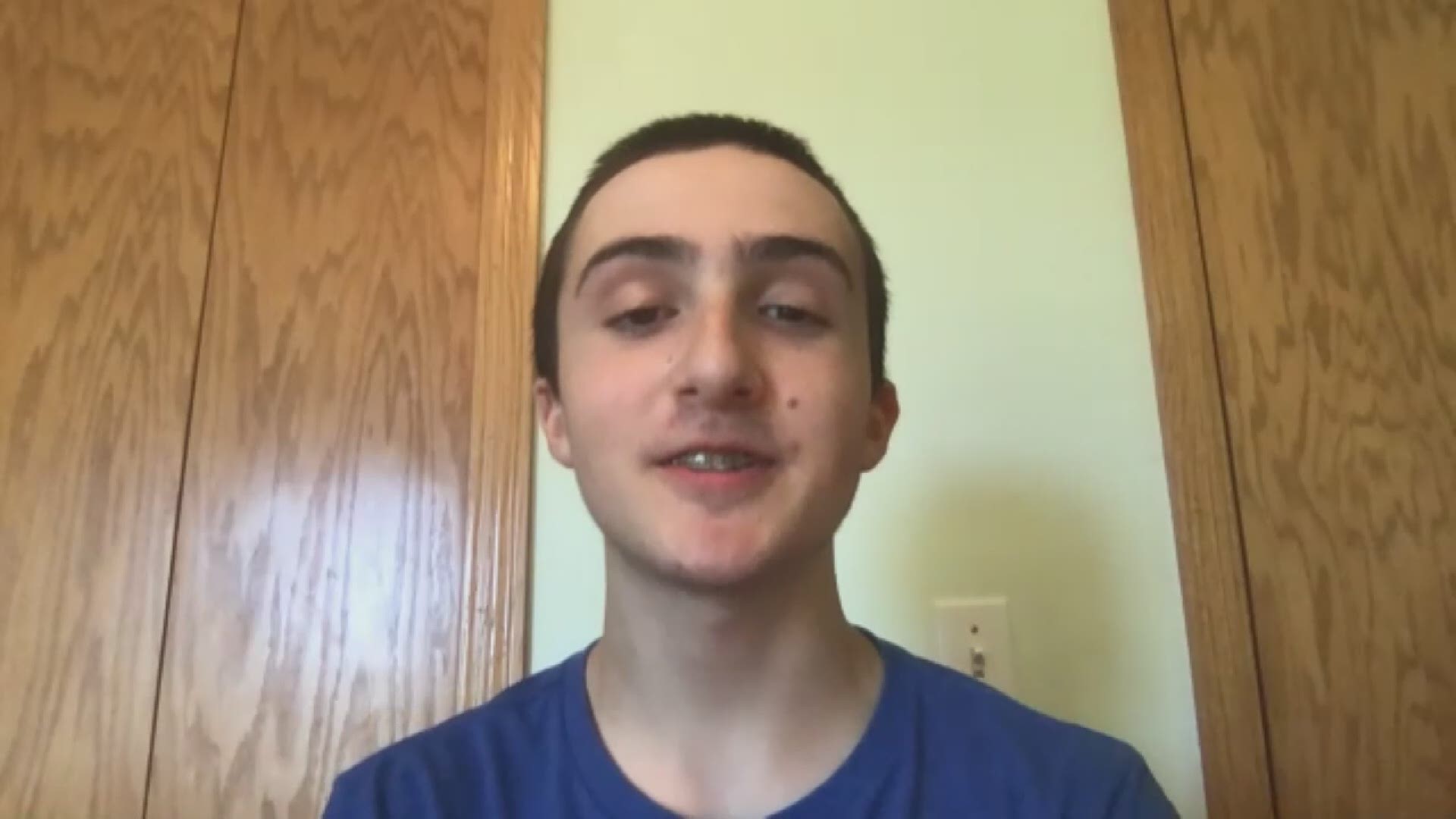WAYZATA, Minn. — Fifteen-year-old Josh Ternyak kept waking up tired, even when he got 8 hours of sleep.
He also noticed that all of his friends at school were experiencing the same thing.
"Everyone told me, 'I feel not energized, I just feel sleepy, sleep-deprived,'" he said. "And I was like, how can everyone be sleep deprived? It’s not possible. Like, they don’t get that much homework."
Josh did some research and determined that he and his friends may be so groggy because they were waking up in the middle of a REM cycle.
The Wayzata High School student, who has been doing web development since he was 11, decided to build a sleep calculator. It's simple: You punch in the time you want to get up, and it tells you when to go to bed so that you don't wake up in the middle of a 90-minute REM cycle.
Josh posted his calculator on a few developer forums, then on Reddit, and saw that it was getting a lot of upvotes. At one point a couple weeks ago, Josh woke up in the morning and saw his website had nearly 10,000 hits.
Dr. Ranji Varghese, medical director at Hennepin Healthcare's Minnesota Regional Sleep Disorders Center, took a look at Josh's calculator.
"It's amazing that a teenager locally has developed a tool for us to be able to, you know, just think about sleep," Varghese said. "And it speaks to how much sleep is getting on the radar of a lot of people, even children and our teenagers."
Varghese explained that sleep is broken up into REM sleep and non-REM sleep. The non-REM sleep stages are the deepest stages of sleep. REM sleep, on the other hand, is where we do our most vivid dreaming.
"Some people think that REM sleep is actually deep sleep, and it's not," Varghese said. "It's actually a very light stage sleep, which explains why sometimes you wake up from a dream and you're pretty awake."
While not every person's sleep cycles are exactly 90 minutes, Varghese said that timing is generally accurate for most of the population.
"If you were to awaken in a lighter stage of sleep, which in this case happens to be REM, you might feel more awake and alert and may experience feeling refreshed," he said.
However, Varghese said, paying attention to your REM cycle is no substitute for getting enough sleep.
"If you're hoping to wake up in REM and feeling refreshed, but you're only getting six hours of sleep, it's not going to happen because sleep is one of those things that once you lose it, you'll never get back."
As parents and teens transition back into a school schedule amid the stress and uncertainty of the COVID-19 pandemic, Dr. Varghese has some recommendations.
- Get enough sleep. For adults, that's a minimum of 7.5-8 hours. For children, more than 9 hours, with younger kids needing up to 10 or 11. Teens generally need 9, Varghese said.
- Go to sleep and wake up when you're ready. The body has natural circadian rhythms, and at a certain point, melatonin kicks in and tells us that it's bedtime. Varghese said instead of fighting those rhythms, listen to them. For teens, sometimes this rhythm skews a little later than for the average adult. If possible, go to sleep when you feel tired, and wake up when your body naturally wants to wake up.
- Avoid caffeine, chocolate and screens before bed. Bright screens before bedtime and bright lights can keep us awake.
- Make your bedroom environment conducive to sleep. On the flip side, this includes as much natural light as possible in the morning when it's time to get up. Even artificial light can help.
- Keep a routine where you go to bed at the same time every night. "Our bodies and our minds love rhythms and routines," Dr. Varghese said. "If we start to prepare our mind and our body for sleep, the chances are you will sort of prepare the mind to be relaxed enough to be able to fall asleep."
- Exercise. Being active reduces stress and makes you more relaxed when you're ready to go to bed.
As for Josh's sleep calculator, he said he loves seeing it improve not only his friends' and his own sleep, but that of others around the world.
"I saw people in different countries were using it, Europe and UK as well, people were using it, and Latin America," Josh said.
Some of those people have reached out and asked Josh for a new iteration of the sleep calculator - a mobile app.
"Many people have requested it," Josh said. "I’ll definitely look into it ... that will take some time because I’ve never done it before."
That didn't stop Josh the first time, though.
"I was really motivated to build it because I knew that if I had this problem, then other people would use it as well," he said.

